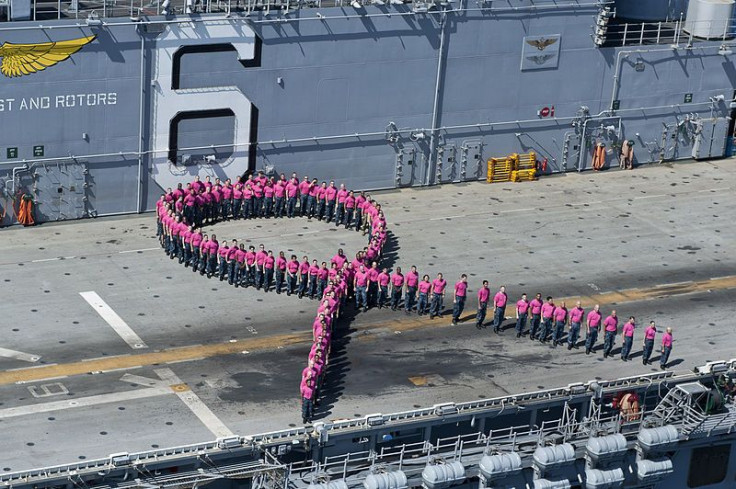Breast Cancer Patient, Rochelle Shoretz, Founds Cancer Organization 'Sharsheret' In Oncology Waiting Room

Sitting in the waiting room of an oncologist’s office to hear whether or not you have breast cancer could be one of the longest moments of your life. Feelings of fear, anxiety, stress, and depression may engulf your mind as you impatiently wait to hear your name called out, only so you can hear the results of a test that could change the rest of your life. Rochelle Shoretz conquered her fear with a spiral notebook and the desire to create an organization that would aid breast cancer patients, all while she was in the waiting room anxious to hear the diagnosis of her breast lump.
Shoretz was diagnosed with breast cancer in 2001 and decided to found the cancer organization, “Sharsheret,” Hebew for “chain” to help empower women of all ages, races and ethnic backgrounds whose lives have been affected by breast cancer, ABC News reports. Currently, Sharsheret has served over 20,000 women, families, and healthcare professionals seeking breast cancer aid and advice.
The then-28-year-old woman decided to undergo a breast examination upon discovering one of her breasts had an indentation as she was changing into a bathing suit. She went to visit Dr. Monica Fornieir, an oncologist at the Memorial Sloan Kettering Cancer Center in New York City. A trip that she thought would only take an hour turned out to be a six hour wait in the oncology room, ending with the words that her breast lump was malignant — she had breast cancer.
"I was floored," Shoretz told ABC News. "I thought I was going to go back into practice and make partner in a big law firm."
Prior to her cancer diagnosis, Shoretz completed a clerkship at the Supreme Court under Justice Ruth Bader Ginsburg, and also had two children. At the age of 28, Shoretz didn’t believe her life plans would be altered or changed by a “major medical crisis” until she actually went through the experience.
Immediately, Shoretz had to make the decision whether to undergo a lumpectomy or a mastectomy. A lumpectomy, also known as breast conserving surgery, only removes the part of the breast that contains or closely surrounds the tumor, says the Susan G. Komen foundation. A mastectomy is the surgical removal of the breast — the specifics of the procedure depends on the initial diagnosis of the patient.
Shoretz confided in her stepmother who suggested genetic counseling to determine if her risk for breast cancer reoccurrence was high. Testing for the BRCA gene — the breast cancer mutation — is strongly suggested for women who have a family history and/or come from an Ashkenazi Jewish backround, since this ethnic group is 10 times more likely to have the genetic mutation. (Shoretz is an Ashkenazi Jew.) After undergoing the tests, and getting a negative result, Shoretz decided to get a lumpectomy to treat her breast cancer.
Shoretz had lots of other questions, as well. For example, would she be able to breast feed her children after her treatment? Like many other breast cancer patients, she found herself in unfamiliar territory without a guide on how to go about her life. Shoretz was motivated to help women like herself who face these challenges every day and have no direct support system to go to when they are in need of advice.
"I remember Rochelle always very busy, with a lot of paperwork which she usually carried in a little trolley suitcase," said Dr. Fornieir to ABCNews.com in an email. "It was of course impressive that she was able to do this while receiving therapy."
Four years ago, Shoretz was struck with breast cancer a second time, this time with stage IV. She underwent a double mastectomy and had other preventative surgeries, which she got through with the help of Sharsheret, her support chain. The cancer organization that she helped build to empower those affected by breast cancer was now being used as a resource by Shoretz.
"I started out as the first link in that chain. I was the person there for the next person down the pipe,” said the now-41-year-old Shoretz. "The chain has come full circle, so I get to draw on the chain myself.”
According to the American Cancer Society, there are 2.8 million breast cancer survivors in the United States. In 2013, there will be approximately 232,340 new cases of invasive breast cancer and an estimated 39,620 deaths.



























